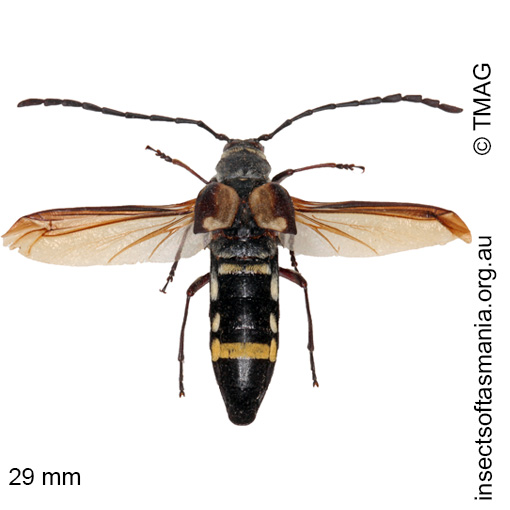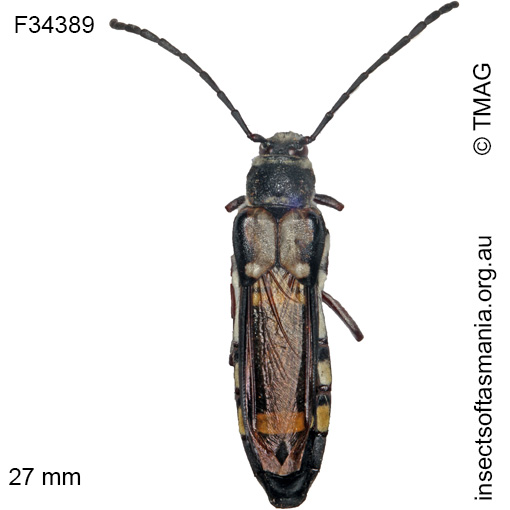
Hesthesis cingulatus
Basis for Tasmanian occurrence
TMAG collections
Classification
Suborder: Polyphaga
Superfamily: Chrysomeloidea
Family: Cerambycidae
Subfamily: Cerambycinae
Tribe: Hesthesini
Morphology
Flightedness: winged and assumed capable of flight
Source literature on morphology and taxonomy (*primary taxonomic source, where identified):
Ślipiński, A. & Escalona, H. (2016). Australian longhorn beetles (Coleoptea: Cerambycidae), Volume 2: Subfamily Cerambycinae. CSIRO publishing, 640 pp.
Ecology
Association with dead wood or old trees: obligately saproxylic
Ecological attributes: — Eucalyptus globulus is a host-plant (Bashford, 1990a) — Eucalyptus maideni is a host-plant (Bashford, 1990a) — Eucalyptus nitens is a host-plant (Bashford, 1990a) — Eucalyptus obliqua is a host-plant (Bashford, 1990a) — Eucalyptus regnans is a host-plant (Bashford, 1990a) — Eucalyptus tenuiramis is a host-plant (Bashford, 1990a) — Can inflict significant damage on Eucalyptus spp. (Elliott & deLittle, 1985).
Collection method(s) for TMAG material: — At light (no trap specified) — Hand collection (substrate not specified) — Rearing in insectary (host not documented).
Source ecological literature:
Bashford, R. (1990a). Tasmanian forest insects and their host plants: records from the Tasmanian Forestry Commission insect collection. Hobart: Tas. Forestry Commission, 32 pages.
Daley, E. (2007). Wings: an introduction to Tasmania’s winged insects. Hobart: 40 Degrees South Pty. Ltd., 236 pages.
Elliott, H.J. & deLittle, D.W. (1985). Insect pests of trees and timber in Tasmania. Hobart: Tas. Forestry Commission, 90 pages.


